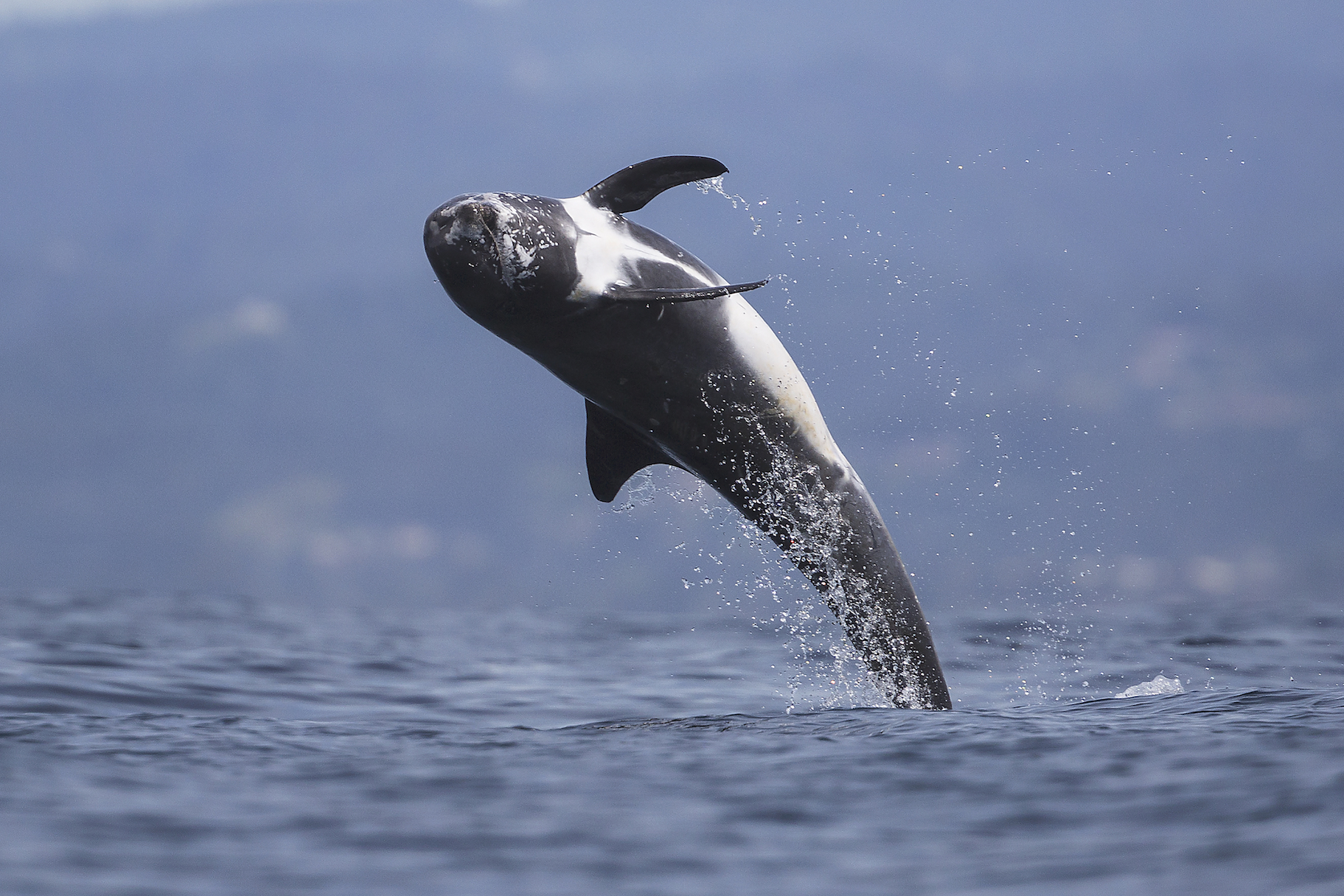
These dolphins strategically plan their dives
A recent study found that dolphins use echolocation to track and monitor prey within their diving ranges and use this information to plan their dives accordingly.
Dolphins and other marine mammals must use their dive time wisely in order to acquire prey before their oxygen runs out.
Previous studies have discovered that these animals are able to store the location of their prey and memorize it.
Researchers from the University of St. Andrews in the UK, the University of California, Santa Cruz, and the Monterey Bay Aquarium Research Institute wanted to find out if Risso’s dolphins plan their dives and can adapt their actions based on information received before, during, and after a dive.
The results were published in the Journal of Experimental Biology.
Tracking dives of dolphins and other marine mammals with similar hunting strategies is no easy feat.
“It is really difficult to approach them and attach something to their backs; you need to be very patient!” said Patricia Arranz, a member of the research team.
The researchers carefully attached data loggers to several Risso’s dolphins with a long pole. The data trackers monitored and recorded the dolphins’ depths, movements, and calls while diving for squid.
Underwater robots equipped with echosounders were also used to track the squid in the water.
The researchers then conducted several experiments, monitoring the dives and recording the sounds emitted by the dolphins as they foraged for food.
“In one of the experiments, we were extremely lucky as the group that the tagged animal was in stayed in the same area, allowing us to track the dolphin every time it was at the surface and observe the prey with the echosounder right where and when the dolphin was foraging,” said Arranz.
Arranz and the rest of the rest of the research team analyzed the recordings from 37 dolphin dives during the experiments.
The researchers found that dolphins started echolocation almost immediately after diving, and that the animals matched their echolocation range to the previous depths that had the most squid.
The fact that the dolphins began echolocation immediately after they dived and continued echolocation as they were surfacing led the researchers to believe that Risso’s dolphins plan their dives ahead of time and use their echolocation as a way to preemptively prepare for any changes they might encounter while foraging.
The results prove that Risso’s dolphins can strategically plan their dives in order to maximize their time underwater.
—
By Kay Vandette, Earth.com Staff Writer













